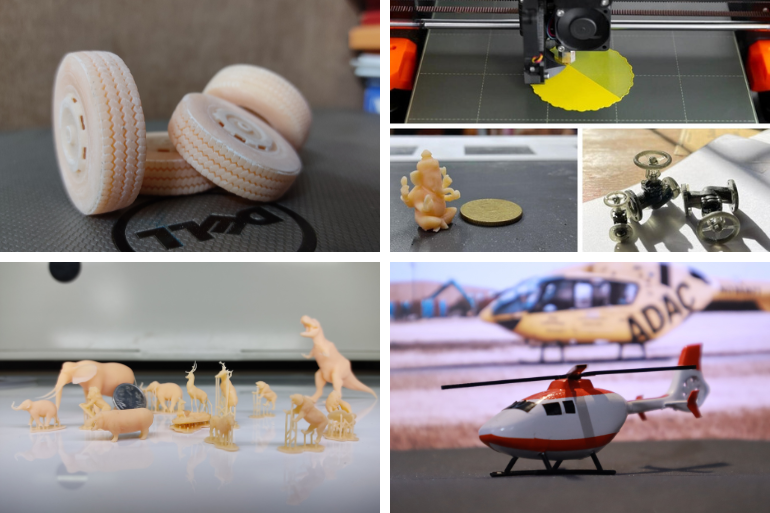Animals have a unique ability to connect with humans on an emotional level, offering unconditional love, companionship, and comfort. For centuries, they have been by our side, not just as pets but as loyal friends who help us navigate the complexities of life. In recent years, the role of animals in supporting our mental health has gained significant attention. From reducing stress to alleviating symptoms of anxiety and depression, these creatures offer numerous psychological benefits. Here’s a look at some of the animals that can have a profound impact on our emotional well-being.
Table of Contents
Toggle1. Dogs: The Ultimate Emotional Support Animals
Dogs are often referred to as “man’s best friend” for a reason. They are incredibly intuitive and can sense when their owners are feeling down or anxious. Their loyal and loving nature makes them perfect companions for those dealing with emotional and mental health issues.
How Dogs Help:
- Reduce Anxiety and Depression: The presence of a dog can significantly reduce symptoms of anxiety and depression. The routine of walking, feeding, and playing with a dog provides structure and purpose, which can be particularly beneficial for those struggling with mental health conditions.
- Provide Unconditional Love: Dogs offer unwavering love and companionship, which can be comforting during tough times. This sense of being loved and needed can help alleviate feelings of loneliness and isolation.
- Promote Physical Activity: Regular walks and playtime with a dog encourage physical activity, which is known to improve mood and reduce stress.
2. Cats: The Calming Companions
Cats may be more independent than dogs, but they are equally capable of providing emotional support. Their purring, in particular, has been shown to have calming effects on humans.
How Cats Help:
- Reduce Stress and Anxiety: The act of stroking a cat can release endorphins in the brain, which helps to reduce stress and anxiety levels. The soothing sound of a cat’s purr has also been linked to lowering blood pressure and promoting relaxation.
- Enhance Emotional Awareness: Cats are sensitive to their owners’ emotions and often offer comfort by curling up next to them or gently nuzzling them.
- Provide a Sense of Routine: Like dogs, cats also thrive on routine. Feeding and caring for a cat can provide structure to a person’s day, which can be beneficial for those dealing with depression or other mental health issues.
3. Horses: Powerful Partners in Therapy
Horses are majestic creatures that have been used in therapeutic settings for many years. Equine-assisted therapy is a growing field that uses horses to help individuals with emotional and mental health challenges.
How Horses Help:
- Enhance Emotional Awareness: Horses are highly perceptive and can mirror the emotions of those around them. This helps individuals become more aware of their own emotions and learn to manage them effectively.
- Promote Trust and Confidence: Working with horses requires trust and communication. Building a relationship with a horse can boost self-confidence and self-esteem, which are often low in individuals dealing with mental health issues.
- Encourage Mindfulness: Interacting with horses requires being present in the moment, which promotes mindfulness. This can help reduce symptoms of anxiety and stress.
4. Birds: Uplifting and Engaging Companions
Birds, with their vibrant colors and cheerful songs, can bring joy and tranquility to any home. They are particularly good at lifting spirits and providing companionship to those in need.
How Birds Help:
- Reduce Feelings of Loneliness: Birds are social creatures and enjoy interacting with their owners. The companionship they offer can help reduce feelings of loneliness and isolation.
- Promote Mental Stimulation: Caring for a bird involves various activities such as feeding, cleaning, and training, which provide mental stimulation and can distract from negative thoughts.
- Boost Mood with Song: The soothing sound of birds chirping or singing can have a calming effect and lift one’s mood.
5. Rabbits: Gentle and Affectionate Friends
Rabbits are known for their gentle nature and can be incredibly comforting to those dealing with stress or anxiety. Their soft fur and quiet demeanor make them excellent companions for those in need of emotional support.
How Rabbits Help:
- Provide a Sense of Calm: Simply petting a rabbit can have a calming effect, helping to reduce stress and anxiety. Their soft fur and gentle nature make them comforting companions.
- Encourage Responsibility: Caring for a rabbit requires attention and responsibility, which can give individuals a sense of purpose and routine.
- Promote Relaxation: Rabbits are quiet animals, and their presence can create a peaceful environment, promoting relaxation and reducing stress levels.
6. Fish: Tranquil and Soothing Companions
While fish may not be the first animals that come to mind when thinking of emotional support, they have a unique way of bringing tranquility into our lives. Watching fish swim in an aquarium can be incredibly soothing and meditative.
How Fish Help:
- Reduce Stress and Anxiety: The simple act of watching fish swim can lower heart rate and reduce stress levels. The calming effect of an aquarium has been well-documented, making it a popular choice for individuals dealing with anxiety.
- Create a Peaceful Environment: The gentle sound of water and the slow movement of fish create a peaceful atmosphere, which can help in reducing stress and promoting relaxation.
- Require Minimal Interaction: For those who may not have the energy or capacity to care for more demanding pets, fish offer a low-maintenance option that still provides emotional benefits.
7. Guinea Pigs: Small but Mighty Emotional Support
Guinea pigs are small, social animals that can form strong bonds with their owners. They are known for their friendly and affectionate nature, making them ideal companions for those seeking emotional support.
How Guinea Pigs Help:
- Reduce Loneliness: Guinea pigs thrive on social interaction and enjoy being handled and cuddled. Their affectionate nature can help reduce feelings of loneliness and provide comfort.
- Encourage Playfulness: These playful animals can bring joy and laughter into a home, which is beneficial for mental health. Interacting with a guinea pig can be a great way to lift one’s spirits.
- Provide Companionship: Guinea pigs are highly social and can form close bonds with their owners, offering companionship and emotional support.
Conclusion
Animals have an extraordinary ability to enhance our emotional and mental well-being. Whether it’s the loyal companionship of a dog, the calming purr of a cat, or the gentle presence of a rabbit, animals can provide comfort, reduce stress, and offer unconditional love. By incorporating these animals into our lives, we can improve our mental health, find solace in their companionship, and experience the joy that comes from sharing our lives with these incredible creatures.




